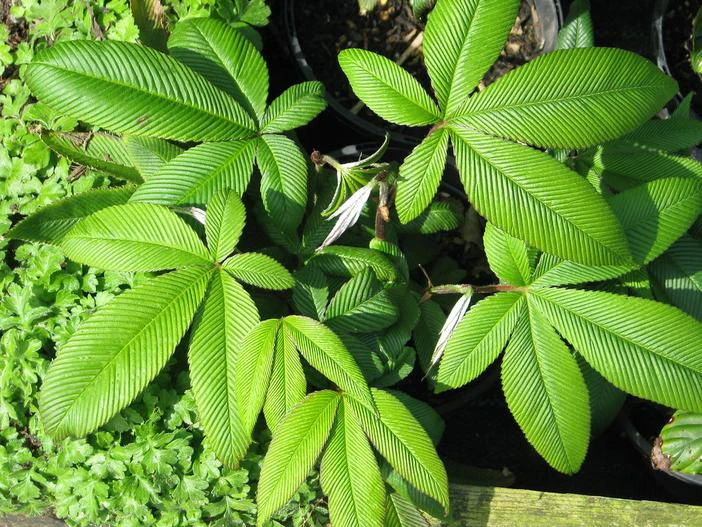Silky Leaved Bramble
(Rubus lineatus)
Silky Leaved Bramble (Rubus lineatus)
/
/

peganum
CC BY-SA 2.0
Image By:
peganum
Recorded By:
Copyright:
CC BY-SA 2.0
Copyright Notice:
Photo by: peganum | License Type: CC BY-SA 2.0 | License URL: https://creativecommons.org/licenses/by-sa/2.0/ | Uploader: peganum | Publisher: Flickr




























Estimated Native Range
Climate Requirements for Guayaquil, Ecuador
| This Plant | Your Site | Plant Suitability for Your Location | ||
|---|---|---|---|---|
| • Precipitation | 14" - 162" | 45" | Aquatic | Aquatic |
| • High Temp. | 55°F - 111°F | 88°F | Your summer temperatures are normal for this plant. | Excellent |
| • Low Temp. | -2°F - 74°F | 67°F | Your winter temperatures are normal for this plant | Excellent |
This plant should grow well at your location with about N inches per year (Y minutes per month) of irrigation.
Summary
Rubus lineatus, commonly known as Silky Leaved Bramble, is a semi-deciduous to deciduous shrub native to the understory of montane forests and forest margins in Southeast Asia and Australasia. It can reach up to 4 meters (13 feet) in height and spread, featuring large, attractive palmate leaves with a striking white underside, which add a lush texture to garden spaces. The shrub produces small, inconspicuous white flowers in spring and summer, which give way to red or yellow ornamental fruits in autumn, provided they receive enough sunlight to ripen.
Silky Leaved Bramble is valued for its textured foliage and its ability to provide seasonal interest with its fruits. It is often used in gardens for border planting or as an informal hedge, and its suckering habit makes it suitable for erosion control on slopes. While it thrives in full sun to part shade, it requires consistent moisture and prefers well-draining soil. Gardeners should be aware that it can spread vigorously, potentially becoming invasive in some conditions. Regular pruning is recommended to maintain its shape and to control its spread.CC BY-SA 4.0
Silky Leaved Bramble is valued for its textured foliage and its ability to provide seasonal interest with its fruits. It is often used in gardens for border planting or as an informal hedge, and its suckering habit makes it suitable for erosion control on slopes. While it thrives in full sun to part shade, it requires consistent moisture and prefers well-draining soil. Gardeners should be aware that it can spread vigorously, potentially becoming invasive in some conditions. Regular pruning is recommended to maintain its shape and to control its spread.CC BY-SA 4.0
Plant Description
- Plant Type: Shrub
- Height: 7-10 feet
- Width: 5-9 feet
- Growth Rate: Moderate
- Flower Color: White
- Flowering Season: Summer
- Leaf Retention: Semi-Deciduous, Deciduous
Growth Requirements
- Sun: Full Sun, Part Shade
- Water: Medium, High
- Drainage: Medium
Common Uses
Bank Stabilization, Bee Garden, Bird Garden, Butterfly Garden, Edible*Disclaimer: Easyscape's listed plant edibility is for informational use. Always verify the safety and proper identification of any plant before consumption., Fragrant, Hummingbird Garden
Natural Habitat
Understory of montane forests and forest margins
Other Names
Common Names:
Scientific Names: Rubus lineatus, Rubus trifoliatus, Rubus mollis
GBIF Accepted Name: Rubus lineatus Reinw.